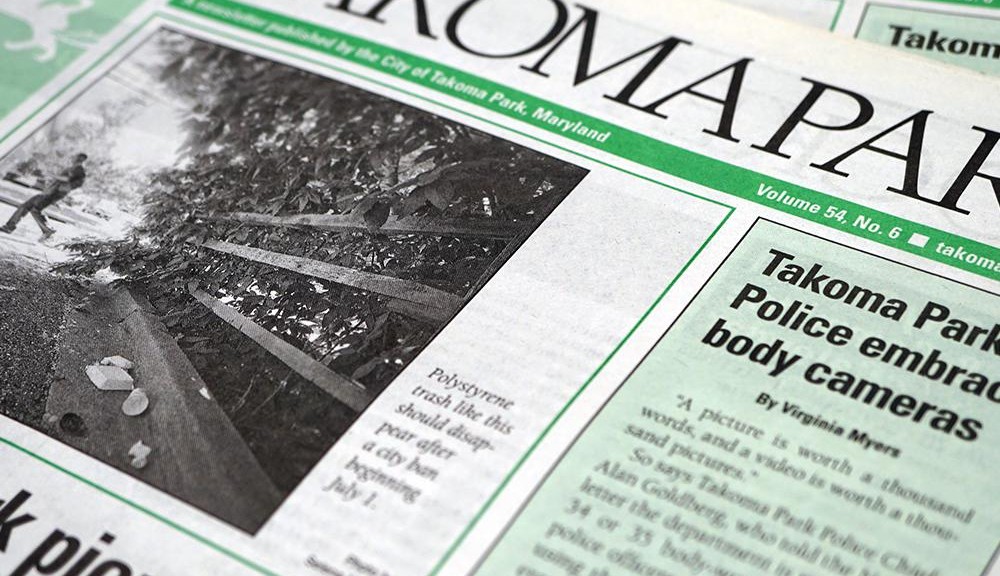By Rick Henry
Takoma Wings Academy (TWA) is an example of a great idea that has taken flight. In this case, literally.
The unique program brings middle school boys and girls from low-income, immigrant families together in a summer camp to investigate the science and engineering of flight in nature, aviation and space exploration as well as flight as a means of self-expression in the arts.
The ½ day, three-week summer camp, which has been held at Takoma Academy for the last two years, recently received a $9,000 Community of Life Grant from the City of Takoma Park.
It is a joint venture between two area nonprofits, Silver-Spring-based Artivate, which specializes in arts-based community learning programs, such as workshops, performances and artist-in-residence programs, and Big Learning, (formerly the Montgomery County Council of PTAs), which operates elementary and middle school instructional programs in language and the sciences.
The pairing of the two organizations was intentional, said James Modrick, Artivate’s executive director. “We wanted participants to explore the science and engineering of flight through an artistic lens. The program engages both sides of the brain, the technical side and the creative side.”
Jane De Winter, Big Learning’s executive director, agreed, noting the two organizations had worked together on previous initiatives before deciding to pair up on TWA. Both De Winter and Modrick stress the concept of STEAM education rather than STEM education.
“Big Learning is focused on STEM (Science, Technology, Engineering and Math), but Artivate provides the A (Arts) piece that is so important,” De Winter said. Merging the two means getting participants involved in both designing and building.
“We take a `maker’ approach that gets them involved in building and testing different types of flight devices, such as hovercrafts and hydroplanes,” Modrick said.
De Winter added that they engage the participants in friendly competitions that allow them to showcase what they have developed. “We have them build catapults and see who can launch things the farthest, for example,” she said.
These challenges not only provide a fun way for the campers to test their prototypes, but they teach them important lessons about resiliency and experimentation. “If something doesn’t work as well as they hoped, the kids learn to go back and look at the problem a different way and make adjustments,” she said. “It shows that failure is not a deal breaker, but part of the process.” Beyond that, De Winter said, the challenges allow the participants to coalesce and support each other.
Such lessons and hands-on experiences are particularly import for the demographic enrolled in the program, boys and girls, aged 10-14, from low-income families in Takoma Park and Langley Park. The initial program began when one of Artiavte’s main funders, the Trawick Foundation, approached the group about creating a program for low-income, middle-school boys.
The first TWA was limited to boys only, but the second year’s camp was opened up to both boys and girls. Twenty boys attended the initial camp, while 26 participants, split nearly even between boys and girls, according to Modrick, attended last year’s Academy. The only cost is a $25 registration fee. All materials, instruction, and field trips to places like Goddard Space Flight Center, the ropes course at Sandy Spring Adventure Park and the Air & Space Museum are free.
According to Modrick, in addition to next summer’s camp, there are also plans to host a camp over the 2017 spring break.
Interested participants and those who want to more about the initiative can contact the Artivate office at 301-588-7525 or info@goartivate.org to get information on the next TWA program.
Rick’s resolution is to run a 10K race in 2017.
This article appeared in the January 2017 edition of the Takoma Park Newsletter. The Takoma Park Newsletter is available for download here.

